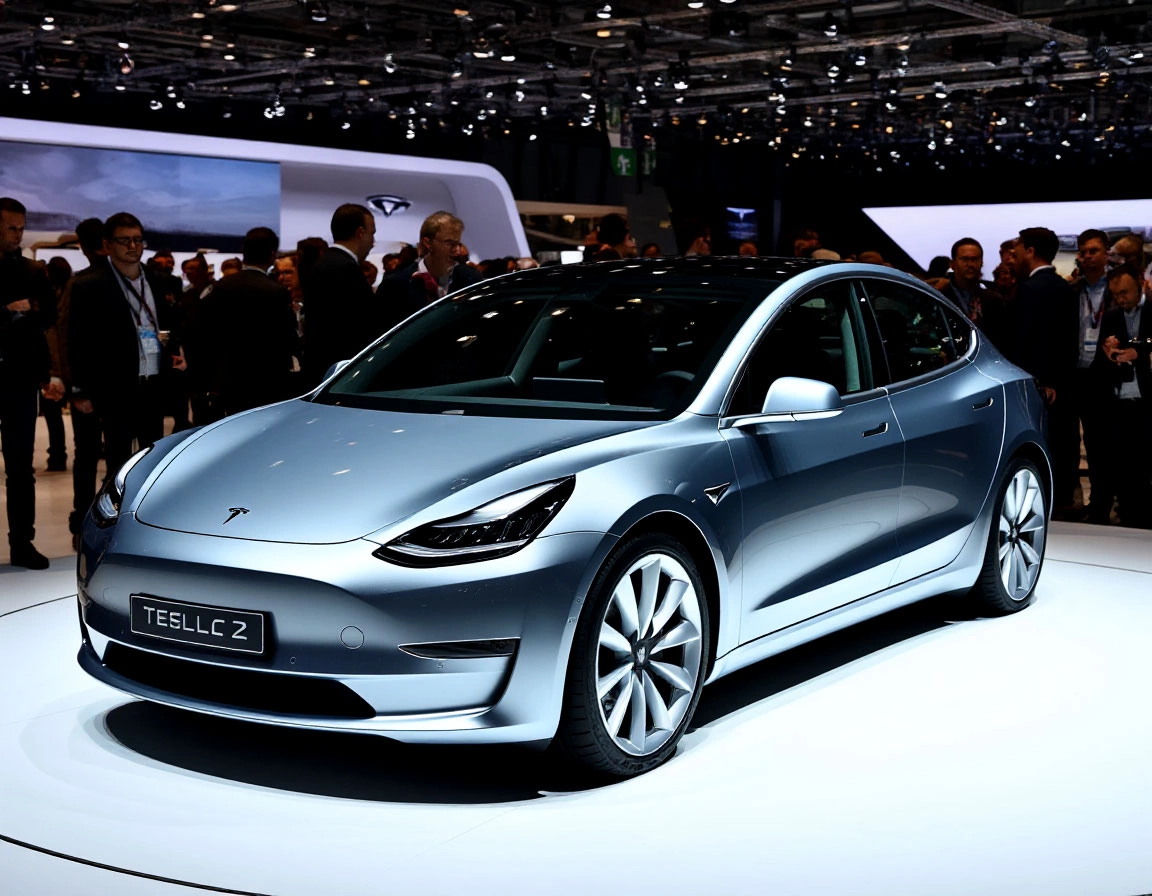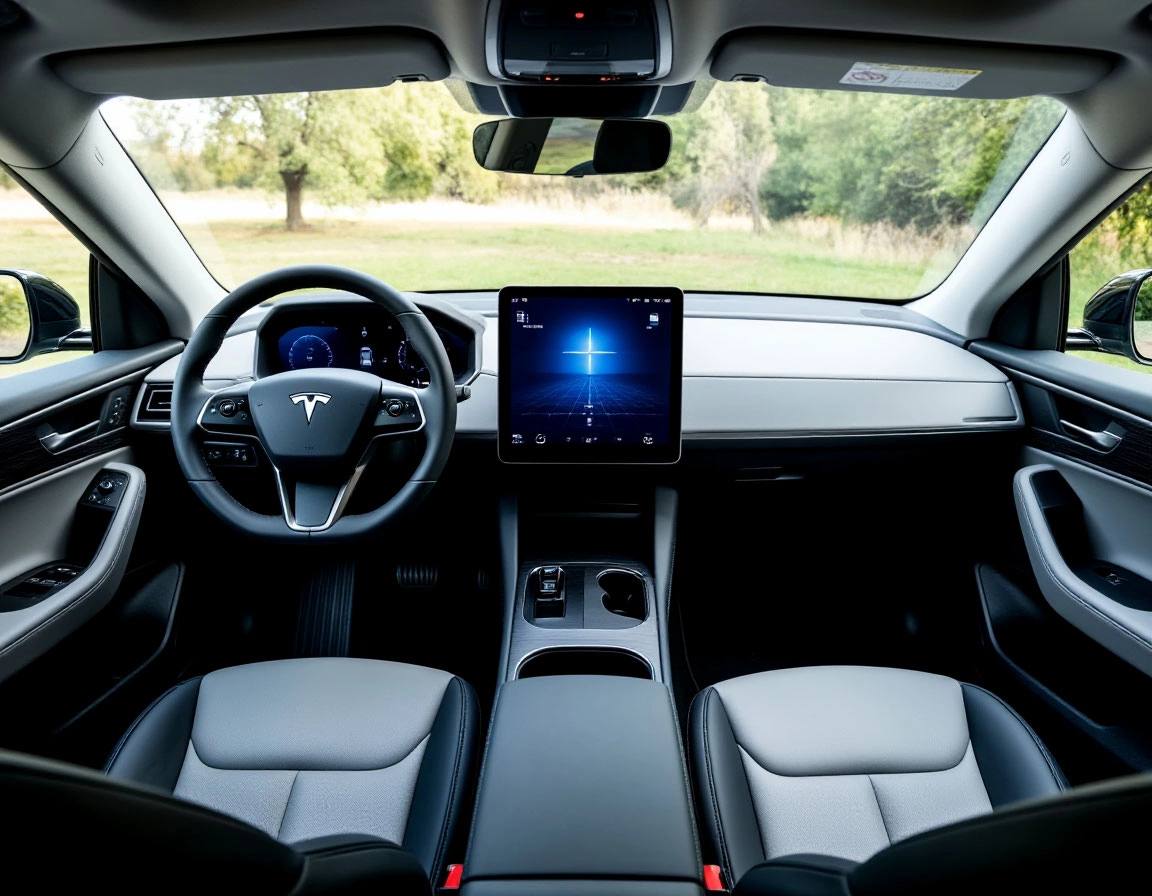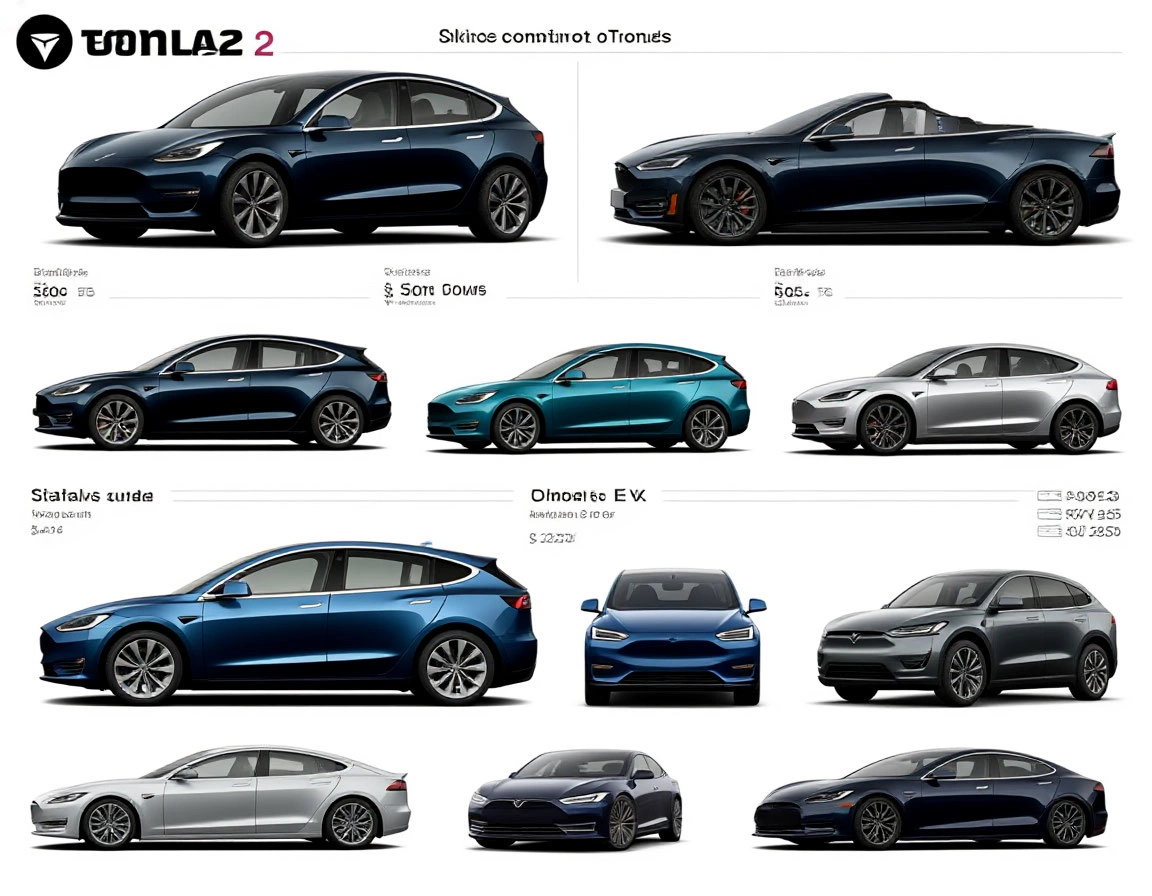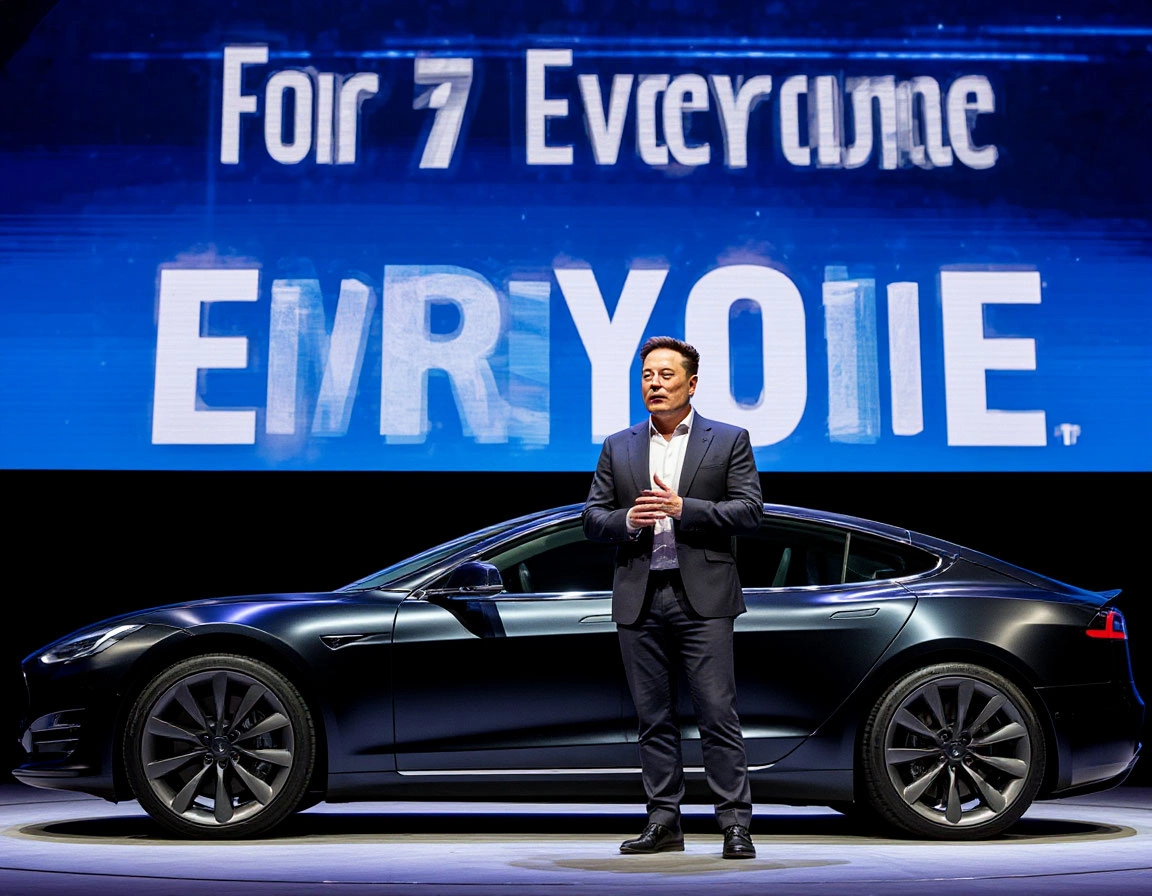Tesla’s Model 2 and the Reinvention of the People’s Car
It’s not often that a car under $25,000 steals the show in Geneva. But this year, Tesla’s Model 2 didn’t just dominate headlines — it sparked something rare in the auto world: an emotional reaction from both die-hard gearheads and first-time buyers.

I’ve been following Tesla long enough to know that their product reveals usually walk a tightrope between cult-like excitement and public skepticism. But what happened at the Geneva Motor Show 2025 felt different. This wasn’t just another Tesla moment — it was a seismic shift in the way we think about electric mobility.
A Car That’s Less About You, More About Us
Let’s get the specs out of the way:
- Price: $24,990
- Range: Approx. 320 km (199 miles)
- 0–100 km/h: 6.9 seconds
- Charging: Full charge in under 20 minutes at a Tesla V4 Supercharger
- Design: Think Model 3 meets cyber-minimalism. Surprisingly fresh.

But to be honest, none of those numbers were what people in the crowd were buzzing about after the lights faded and the cameras shut down. What they were talking about — and what I couldn’t stop thinking about — was the timing. Because the Model 2 isn’t just a product. It’s a response.
2025 is shaping up to be a pressure cooker for the automotive industry. Between regulatory deadlines in Europe, supply chain volatility, battery production bottlenecks, and the inevitable AI creep into every onboard system, there’s been one question hovering above the industry like a drone: When will EVs actually be for everyone? The Model 2 might finally be the answer.
Why This Car Matters More Than It Looks
There’s something symbolically powerful about a company known for $80,000 cars turning its energy toward accessibility. It challenges the old “EVs are for the elite” narrative. More than that, it reframes the electric future as a necessity, not a luxury.
We’ve seen plenty of budget EVs before — the Dacia Spring, the BYD Dolphin, even Chevy’s now-departed Bolt — but they often came with compromises: poor range, clunky interfaces, or simply uninspiring design. The Model 2, at least from first impressions, breaks that cycle. It doesn't just lower the price point. It lowers the psychological barrier to EV adoption.

And yes, I know there are caveats. It’s still a Tesla — meaning you're buying into an ecosystem that’s famously closed, sometimes buggy, and deeply reliant on software over physical buttons (a point of contention for many). But it’s also a car built on lessons from the past decade: smarter supply chains, leaner batteries, and a clearer understanding of what consumers actually want from an EV.
Designing for a Changing World
What stood out to me most, beyond all the specs and the buzz, was how intentionally “small” this car is — in the best way possible. At a time when vehicles keep ballooning in size (looking at you, electric SUVs), the Model 2 feels like a quiet rebellion. It's right-sized for urban living. It assumes a future where efficiency isn't just about battery power but about spatial awareness, shared infrastructure, and even parking reality. That’s not just good design. That’s social design.
It shows an understanding that cities are changing. That roads won’t endlessly widen. That maybe, just maybe, the future of transportation is smaller, smarter, and more collective.
The Bigger Question: Will It Deliver?
Of course, this is Tesla. And Elon Musk. So skepticism is not only fair — it's necessary. We've seen timelines slip, features disappear, and promises morph into very different realities. The Model 2’s production is scheduled to begin by Q4 2025 in Giga Berlin and later in Texas, but we’ve heard that kind of optimism before. Still, I think we need to look beyond the manufacturing timelines. The point isn’t whether this exact car arrives on your driveway tomorrow. It’s that this kind of car is now part of the mainstream conversation.
And not just from Tesla. The Model 2 announcement immediately sent shockwaves across competing automakers. I’ve already seen rumblings from Renault, Honda, and Hyundai about accelerated plans for their own next-gen budget EVs. That’s the real power of this reveal — it forces everyone to get serious.

Final Thoughts: A Democratization Moment
Close